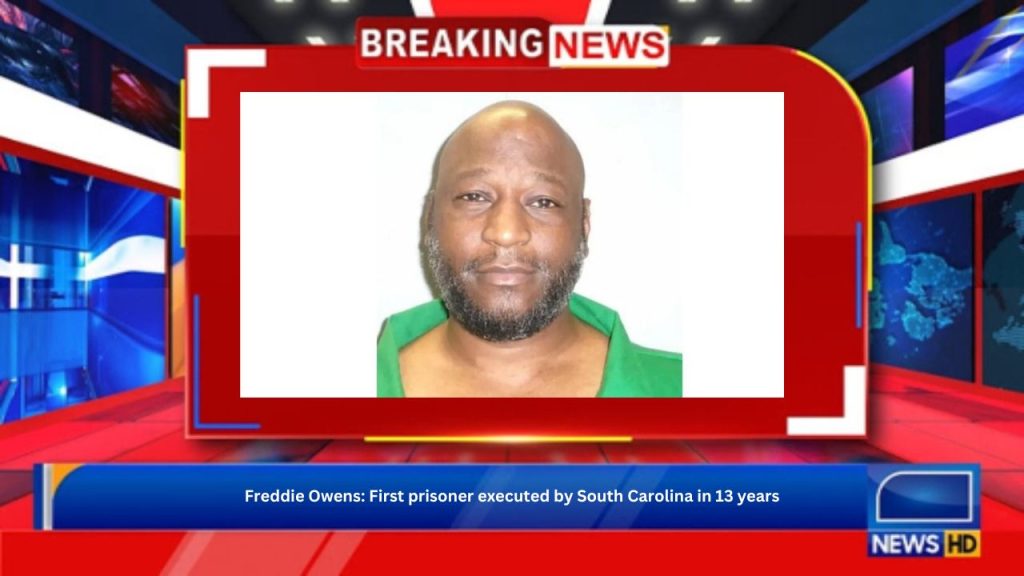Freddie Owens received a deadly injection, marking South Carolina’s first execution of a death row inmate in 13 years.

After an armed robbery in Greenville in 1997, Owens, 46, was found guilty by a jury of killing store employee Irene Graves.
Owens’ co-defendant signed a sworn testimony this week asserting that Owens was not there during the robbery and slaying, yet he was nonetheless executed.
Despite the assertions being at odds with testimony given during Owens’ trial, the South Carolina Supreme Court declined to stay his execution.
It was a Friday night when Owens was put to death at the Broad River Correctional Institute in Columbia, SC.
After receiving a pentobarbital injection, he was declared dead at 18:55 local time (22:55 GMT). He left it at that.
Due to prison officials’ inability to get the medication needed for lethal injections, the state suspended executions until his death.
After being found guilty of murder, armed robbery, and criminal conspiracy, Owens was given the death penalty in 1999, two years after he had killed Graves.
He killed his fellow cellmate the day after he was found guilty, according to CNN affiliate WHNS.
The State, a newspaper in South Carolina, said during his trial that Owens, then 19 years old, and Steve Golden, then 18 years old, attempted to rob Graves of her job at a convenience store by holding her at gunpoint.
Golden’s testimony during Owens’s trial states that after Graves neglected to access a safe under the counter, Owens shot and murdered her.
Graves was forty-one years old and a single mother of three at the time of her passing.
Owens’s attorneys attempted twice in September to get his execution postponed. Still, the court turned down every plea.
Attorneys used an affidavit sworn by Golden on Wednesday, claiming Owens was innocent, in an attempt to discredit him.
The new declaration is “squarely inconsistent with Golden’s testimony at Owens’s 1999 trial” and the statement he made to police immediately after their arrest, the court ruled in rejecting the motion to postpone the execution.
Prosecutors said that other witnesses stated Owens had admitted to them that he had shot Graves.
Owens’s mother and opponents of the death penalty also made an application to the state for clemency, but Governor Henry McMaster turned it down.
Owens’s mother described it as a “grave injustice that has been perpetrated against my son” in a statement just hours before he was put to death.
As reported by the Greenville News, Freddie’s mother, Dora Mason, stated, “Freddie has maintained his innocence since day one.”
Inmates in South Carolina are free to select whether they wish to die by firing squad, electric chair, or lethal injection.
Owens chose the option of a fatal injection for himself after delegating the decision to his attorney, as reported by the Greenville News.
Reporters who were there at the execution reported seeing members of Graves’ family as well.


